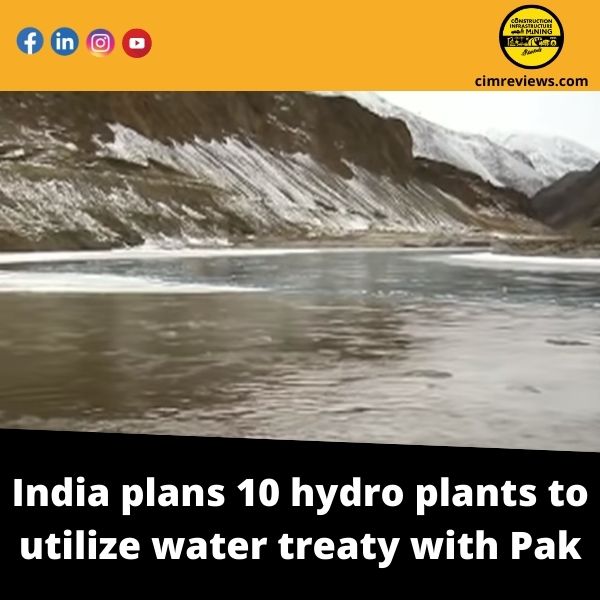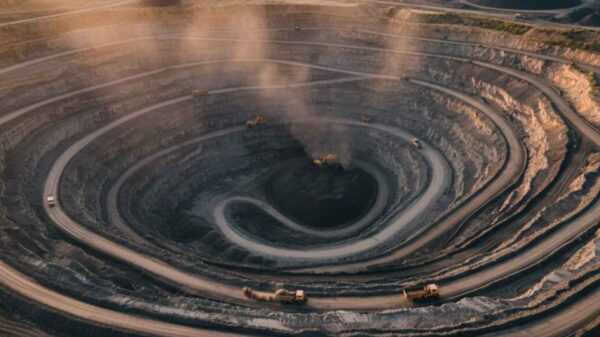
NEW DELHI: India is developing ten hydroelectric projects totaling 6.8 gigatonnes (GW) in Jammu and Kashmir and Himachal Pradesh in order to fully utilise its share of water under the 1960 Indus Waters Treaty with Pakistan.
The projects, which are being done by the state-run NHPC Ltd at a cost of 68,000 crore, are part of India’s effort to assert its rights to prevent surplus water from flowing into Pakistan.
These projects take on strategic significance in the context of China’s disputed China-Pakistan Economic Corridor, because control over river water flow functions as a force multiplier during times of conflict.
To oppose China’s ambitious effort to divert water from the river that feeds downstream into the Brahmaputra, India has taken a similar approach on its eastern borders, planning to build the country’s second-largest dam at Yingkiong in Arunachal Pradesh.
According to NHPC chairman and managing director Abhay Kumar Singh, the public sector initiative is building the 1,000 MW Pakal Dul project, the 850 MW Ratle project, the 624 MW Kiru project, and the 540 MW Kwar project, all in Jammu & Kashmir.
Furthermore, India’s largest power generation company intends to construct the 1,856 MW Sawalkot (J&K), 930 MW Kirthai-II (J&K), 500 MW Dugar (HP), 240 MW Uri-I Stage-II (J&K), and 260 MW Dulhasti Stage-II (J&K) power plants (J&K).
Mint previously reported on the union government’s aim to expedite strategically vital hydropower projects in J&K following the state’s restructuring into two Union territories – Jammu and Kashmir and Ladakh. India is also developing a proposal to redirect the waters of Ujh, a major tributary of the Ravi that flows into Pakistan.
“Pakistan continues to object, but we have the Indus Waters Treaty.” We developed Kishanganga, Uri, and other projects on the basis of the Indus Waters Treaty, and we are developing these projects on the basis of that treaty,” Singh added.
The Indus Waters Treaty states that whomever constructs a project first has first rights to the river waters. The pact establishes a platform for collaboration and information sharing between the two countries in relation to the use of six rivers: the Beas, Ravi, Sutlej, Indus, Chenab, and Jhelum.
The move comes four years after Prime Minister Narendra Modi dedicated to the country NHPC Ltd’s Kishanganga hydropower project. The 330 MW project on the Kishanganga, a tributary of the Jhelum, is strategically vital. Pakistan has contested the project under the 1960 Indus Waters Treaty, but the International Court of Arbitration in The Hague decided in favour of India in 2013. Pakistan had also objected to the Pakal Dul and Lower Kalnai hydropower projects on the Chenab, in addition to Kishanganga.
The Cabinet Committee on Economic Affairs approved the 540MW Kwar project by Chenab Valley Power Projects Pvt. Ltd, a joint venture of NHPC Ltd and Jammu & Kashmir State Power Development Corp. Ltd, last month.
“The project’s construction activities will provide direct and indirect employment to about 2500 persons and will contribute to the general socioeconomic development of the Union Territory of J&K.” Furthermore, the UT of J&K will benefit from free power of roughly 4,548.59 crore and 4,941.46 crore with Water Usage Charges from the Kwar Hydro Electric Project over the project’s 40-year life cycle,” the power ministry stated in a 27 April statement following the CCEA’s clearance.




%20(3).jpg)
.jpg)


.png)
.png)


.jpg)
.jpg)
.jpg)




